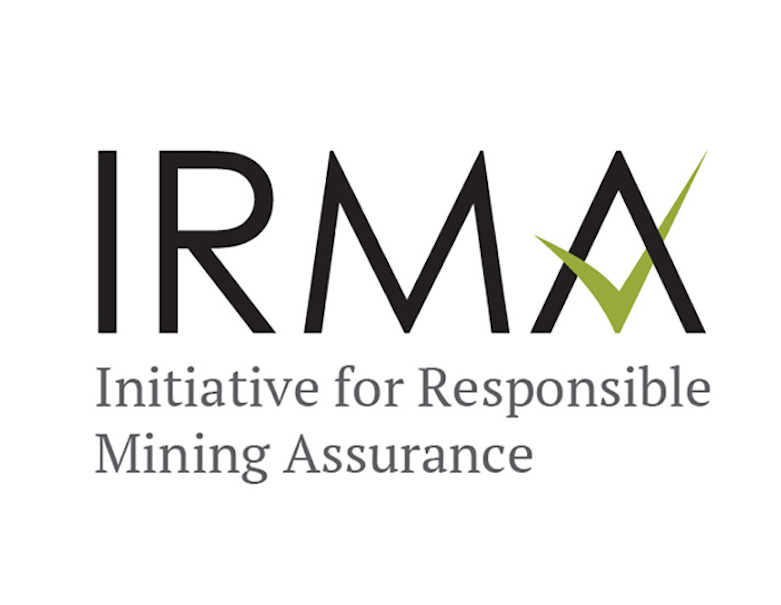Statement on Nornickel’s IRMA self-assessment

By a coalition of Indigenous Rights leaders and non-governmental organizations
Self-assessment demonstrates that Nornickel does not comply with international social and environmental standards
- According to Nornickel’s own claims, the self-assessment found significant shortcomings with respect to environmental and social standards, preventing a desirable, higher rating within the IRMA standard
- An international coalition of Indigenous Peoples, environmental and human rights organizations urges Nornickel to publish the results of its self-assessment and to clearly identify corrective actions
Russian mining company Norilsk Nickel (Nornickel) announced in March 2023 that the company had completed a self-assessment against the IRMA (Initiative for Responsible Mining Assurance) Standard. The self-assessment is an initial, necessary step to begin the assessment process under the Initiative for Responsible Mining Assurance. IRMA has stated that it will not start any audit process in Russia until further notice due to Russia’s attacks on Ukraine.
However, Nornickel’s press release gives the mistaken impression that Nornickel’s compliance with the IRMA Transparency level is to be celebrated. However, IRMA Transparency is the lowest of IRMA’s four achievement levels. The IRMA Transparency achievement only requires that auditors assess performance and results are publicly shared. It does not require any compliance with the industry-leading social and environmental standards identified by IRMA.
Based on Nornickel’s public statements, it is not possible to identify which social and environmental standards the company does not meet. We can only say that Nornickel does not meet 50% of IRMA’s standards or critical requirements identified by IRMA. We request that Nornickel immediately publish the full and unedited self-assessment, which would be required to meet the IRMA Transparency standard, the review of the self-assessment by ENSOR Management Consultants, and Nornickel’s roadmap of corrective actions.
In view of Nornickel’s historic misconduct and disregard for international standards in dealing with Indigenous Peoples, as well as the fatal environmental disasters for which Nornickel is responsible, we welcome any initiative by Nornickel to respect international environmental and social standards. This must become a matter of course, the proof of which must not depend solely on voluntary initiatives such as IRMA.
In particular, we are concerned that Nornickel does not respect the right of Indigenous Peoples to Free, Prior, and Informed Consent (FPIC). IRMA’s standard on Free, Prior, and Informed Consent and associated guidance provides specific approaches and benchmarks that must be followed to demonstrate compliance with FPIC. IRMA has also published a specific fact sheet about FPIC, which is recognized by IRMA as a Critical Requirement.
Nornickel also has a history of causing environmental harm, including its 2020 diesel spill, in which over 20,000 tons of diesel fuel were spilled into waterways in the Russian Arctic. Indigenous Peoples on Russia’s Taimyr Peninsula continue to complain about impacts to traditional fisheries resources – which they rely on for food – as a result of the spill.
Nornickel should not be satisfied with its self-assessment. Both Nornickel and ENSOR Management Consultants, which has independently reviewed the results, conclude that in the event of an independent IRMA audit, Nornickel would only achieve the lowest level of the IRMA standard, namely IRMA Transparency. This level is relatively easy to achieve: It is sufficient that an IRMA-certified audit has taken place, with the result and summary published. The next level is IRMA 50, where at least the critical requirements of IRMA must be substantially met. Nornickel has not found this to be the case for itself.
In view of obvious deficits in respecting basic environmental and social standards, Nornickel has announced corresponding “corrective actions” this year to raise the level of compliance with requirements of the IRMA standard. However, Nornickel does neither provide any information on which requirements nor what exactly is to be improved, let alone with which measures.
We call on Nornickel to live up to its now own claim to transparency and also to publish the results of the self-assessment in full. IRMA’s Mine Measure tool also offers a function to grant selected stakeholders access to the results. Nornickel must also clearly communicate which deficits have been identified and which measures will be used to correct them. Meanwhile, it is important to remain vigilant about Nornickel’s actions towards environmental sustainability and social responsibility to ensure that Nornickel is changing its actions, not just its words.
“Nornickel always states that it complies with international standards,” said Pavel Sulyandziga, President of the Batani Foundation. “However, unfortunately, Nornickel misrepresents its efforts in order to gain recognition, and falsifying information remains part of Nornickel’s culture. I know that in Russia, the government and business lie regularly to achieve their goals, but international auditors and companies should not be deceived by Nornickel’s falsehoods. I wish Nornickel management would start to actually respect the FPIC Principle, Indigenous Peoples’ self-determination, and transparency, rather than pretending that they comply with international standards when in practice they do not.”
When asked for context on the company’s claims, IRMA Executive Director, Aimee Boulanger, stated that companies may use IRMA’s self assessment tool to gain insight on ways to improve practices, and even may use that tool confidentially, but may not make claims of performance achievement until an IRMA approved independent audit is done. She went on to say “because Nornickel is publicly communicating about its self assessment results, I encourage the company to share its self assessment publicly as a way to engage with all Indigenous representatives about what they mean, when they say they ‘aspire to follow best practices in sustainability’, and to meet IRMA’s intention for transparency.”
Background:
Nornickel’s press release: https://www.nornickel.com/news-and-media/press-releases-and-news/nornickel-completed-self-assessment-for-irma-certification-170323/
IRMA assessment and achievement levels: https://responsiblemining.net/what-we-do/certification/
- International Committee of Indigenous Peoples of Russia
- International Indigenous Fund for development and solidarity “Batani”
- Cultural Survival
- Society for Threatened Peoples – Switzerland
- Society for Threatened Peoples – Germany
- Association of Ethical Shareholders Germany
- Altai Project
- Indigenous Russia
- Saami Heritage and Development Foundation
- SIRGE Coalition
- First Peoples Worldwide
- Earthworks
- INFOE